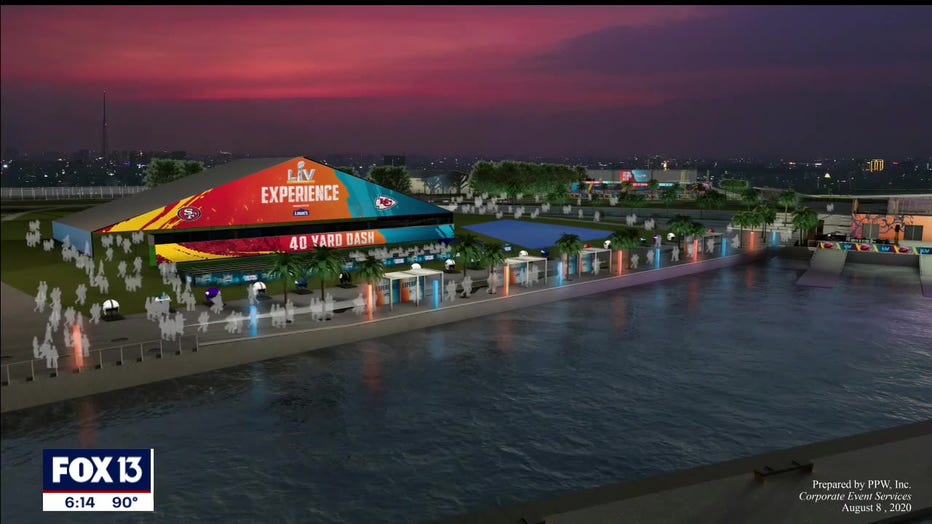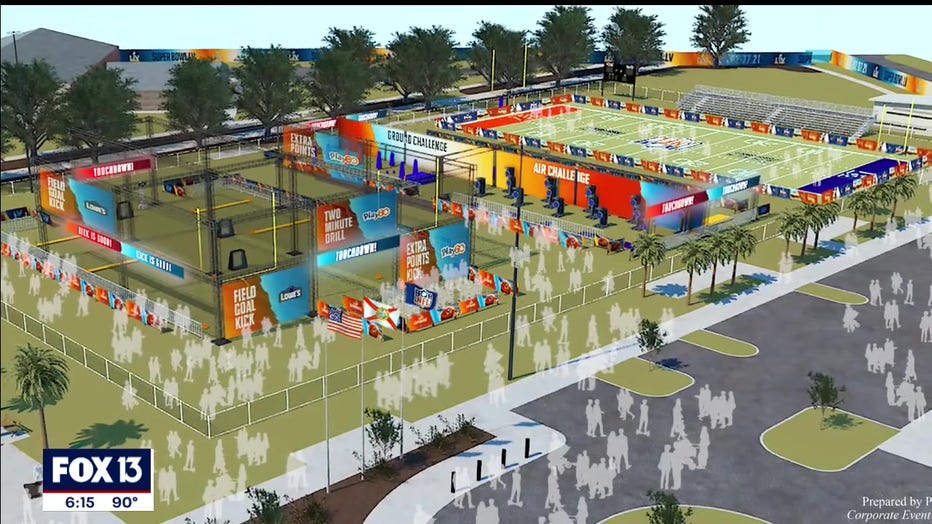Known for hosting massive events, Tampa faces toughest challenge yet: The Super Bowl during a pandemic
TAMPA, Fla. - Tampa has a history of hosting Super Bowls during challenging times.
In 1991, soldiers fought in Desert Storm during Super Bowl XXV.
The Great Recession ravaged the world economy during Super Bowl XLII in 2009.
The greatest challenge is yet to come, with kickoff for Super Bowl LV at Raymond James Stadium just 200 days away and no clear evidence the global COVID-19 pandemic will disappear.
Add to that, social division and political unrest. But Derrick Brooks says he's ready.
“I look at this as an enormous opportunity to bring our country together,” the NFL Hall of Famer and co-chair of the Tampa Bay Host Committee said during an online meeting of organizers Tuesday.
Members of the committee and the NFL virtually laid out what they hope will be a reality, including a transformation of the Tampa River Walk into a Super Bowl attraction nearly three miles long.

They're calling it a Super Bowl amusement park with food and music, leading to centers of activity in both Curtis Hixon Park and Julian B. Lane Riverfront Park.
All of it will be free in the days leading up to the game February 7. But it’s all contingent upon COVID-19.
“We’ll be flexible, we’ll be adaptable and we’ll work through whatever circumstances may come to bear,” said NFL executive vice president Peter O'Reilly. “Health and safety will guide every one of our decisions."
For Tampa Bay businesses, millions of dollars hang in the balance.
As the pandemic changes, some decisions might need to be game-time decisions.
“We’re going to be very nimble and adapt to evolve around the country and in the Tampa Bay Area,” said NFL events director Nicki Ewell. “So look for those fan communications. 'Know before you go' is going to be very critical.”

The NFL and the host committee also bring what they’re calling Forever 55, a campaign to make a lasting difference in the community, which amounts to $2 million for early childhood education, food insecurity, families, health and wellness, sustainability and systematic justice.
But predicting what the pandemic will look like in six months is a challenge.
“Clearly this is a different year and a different Super Bowl,” said O’Reilly.
Tampa could be living up to its history of hosting big games amid big challenges.

